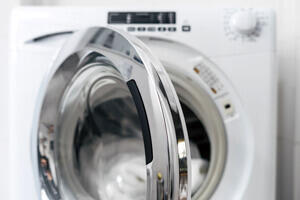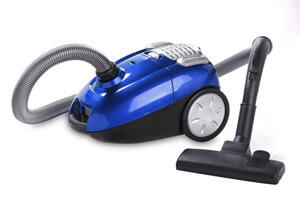Welcome to House and Home Online
House and Home Online is your one-stop shop for home appliance tips, how-to guides, troubleshooting, and QA articles. Our experts provide the latest information to help you get the most out of your appliances. We also offer home improvement articles to help you transform your living space. Let us help you make your home the best it can be.

Browse Categories
From The Blog
How Long Does It Take To Make Ice Cubes at Home?
How Long Does It Take To Make Ice? The time it takes to make ice can vary depending on various factors. Factors such as the temperature of the freezer, the…
Are Tide Pods Septic Safe? Protect Your Plumbing!
Are Tide Pods Septic Safe? Tide Pods are not specifically marketed as septic-safe laundry detergents. While they are gentle on sensitive skin and safe for delicate fabrics, they may not…
Is Bowling Green KY Safe for Solo Female Travelers?
Is Bowling Green KY Safe? No, Bowling Green KY is not considered safe. It has one of the highest crime rates in America compared to other communities of all sizes….
How to Seal Toilet Base for a LeakFree Bathroom
How to Seal Toilet Base? To seal a toilet base, you will need to follow a few steps. First, make sure to prepare the area by thoroughly cleaning and drying…
How Long to Microwave Bacon per Slice: Tips and Tricks
How Long to Microwave Bacon per Slice? To microwave bacon per slice, the general cook time is 4-6 minutes, but this can vary depending on the wattage of your microwave….
Do Induction Cooktops Need Special Pots for Safe and Efficient Cooking?
Do Induction Cooktop Need Special Pots? Yes, induction cooktops do require special pots and pans. They must be made of a magnetic material such as iron or steel in order…
How to Fix E1 Error on Air Conditioner: Troubleshooting Tips
How to Fix E1 Error on Air Conditioner? To fix E1 error on an air conditioner, the faulty sensor needs to be replaced. This error code could indicate a problem…
What Are Blender Bottles Used For and Why Are They Essential for Fitness Enthusiasts?
What Are Blender Bottles Used For? Blender Bottles are used for making smooth shakes by shaking together ingredients with a wire whisk called the BlenderBall. They can also be used…
How Many Gallons per Flush? A Guide to Water Conservation and Efficient Plumbing
How Many Gallons per Flush? The number of gallons per flush (GPF) for toilets can vary depending on when they were manufactured. Toilets made before 1982 typically use 5 to…
Can I Grow Wisteria in a Pot: Tips and Techniques for Successful Container Gardening
Can I Grow Wisteria in a Pot? Yes, you can grow wisteria in a pot. Wisterias can be successfully grown in pots as long as they receive full sun and…
Can You Make Waffles and Freeze Them for Later Convenience and Freshness?
Can You Make Waffles and Freeze Them? Yes, you can make waffles and freeze them for later use. This is a convenient option for those who enjoy waffles but find…
How to Get Rid of Rust Stains in Shower: Effortless Tips and Tricks for a Spotless Bathroom
How to Get Rid of Rust Stains in Shower? To get rid of rust stains in the shower, there are a few effective methods you can try. Commercial rust removers…
Can You Put Succulents Outside? Expert Tips
Can You Put Succulents Outside? Yes, you can put succulents outside. Succulents are drought-tolerant plants that store water in their thick leaves. They can thrive in sunny locations with warm,…
How to Clean Up Wax Spills: Essential Tips
How to Clean Up Wax Spills? To clean up wax spills, there are different methods depending on the surface affected. For wooden floors, it is best to let the wax…
What Can You Cook on a Griddle: Delicious Recipes for All Your Cravings
What Can You Cook on a Griddle? A griddle is a versatile cooking appliance that can be used to cook a wide variety of dishes. From breakfast favorites like eggs…















